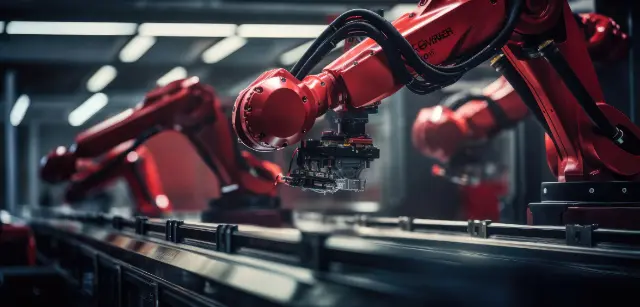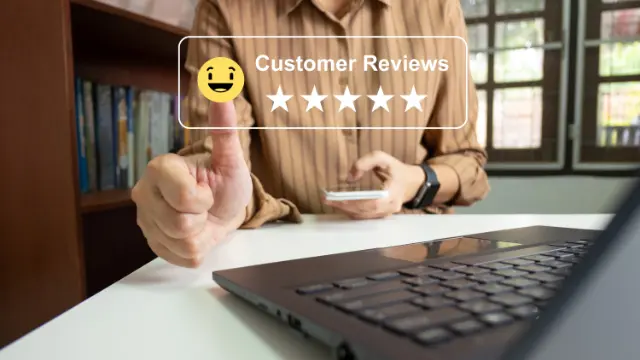Unleashing the Power of Supplier Management Automation for the Hospitality Industry
Supplier management, a crucial aspect of the hospitality industry, often involves manual processes that can lead to inefficiencies and errors. From onboarding and communication to performance tracking and inventory management, automating these tasks can streamline operations and drive significant benefits.
Python, with its robust libraries for data manipulation and automation, combined with the power of AI and cloud-based solutions, offers a comprehensive solution for supplier management automation. By leveraging these technologies, hospitality businesses can:
- Enhance communication and collaboration: Automate email and messaging communication with suppliers, ensuring timely updates and reducing response times.
- Streamline performance tracking: Monitor supplier performance metrics, such as delivery times, quality, and compliance, to identify areas for improvement and foster stronger relationships.
- Optimize inventory replenishment: Automate inventory tracking and reordering processes, ensuring optimal stock levels and preventing stockouts.

Python, AI, and Cloud: The Cornerstones of Supplier Management Automation
Python, with its versatility and extensive libraries, plays a pivotal role in developing both unattended and attended bots for supplier management automation.
Unattended Bots: Automating Repetitive Tasks
Unattended bots, powered by Python, can automate repetitive tasks such as:
- Monitoring supplier performance metrics and generating reports
- Sending automated emails and messages for order confirmations, delivery updates, and reminders
- Processing invoices and payments, reducing manual data entry errors
Attended Bots: Enhancing Human-Bot Collaboration
Attended bots offer a collaborative approach, assisting human users in tasks such as:
- Quickly accessing supplier information and placing orders
- Resolving discrepancies and managing exceptions
- Providing real-time support and guidance to procurement teams
Cloud platforms, with their vast capabilities, offer a powerful foundation for supplier management automation. Compared to traditional RPA/workflow tools, cloud platforms provide:
- Scalability: Easily handle large volumes of data and transactions
- Flexibility: Adapt to changing business requirements and integrate with multiple systems
- Security: Ensure data protection and compliance with industry standards
AI further enhances the accuracy and efficiency of supplier management automation. Techniques like:
- Image recognition: Automates the processing of invoices and other supplier documents
- Natural language processing (NLP): Enables bots to understand and respond to supplier inquiries in a natural way
- Generative AI: Generates supplier contracts and other documents, saving time and reducing errors
By leveraging the combined power of Python, AI, and cloud platforms, hospitality businesses can automate their supplier management processes, streamline operations, and gain a competitive edge.

Building the Supplier Management Automation
Process Analysis and Automation Design
The first step in building a supplier management automation solution is to analyze the existing processes and identify areas suitable for automation. This involves:
- Mapping out the supplier management workflow, including communication channels, performance metrics, and inventory management processes
- Identifying repetitive and time-consuming tasks that can be automated
- Designing the automation architecture, including the choice of Python libraries, cloud services, and AI techniques
Development and Implementation
Once the automation design is complete, the next step is to develop and implement the solution using Python and cloud platforms. This includes:
- Developing unattended bots for tasks such as performance monitoring and invoice processing
- Creating attended bots to assist human users with tasks such as order placement and exception handling
- Integrating the bots with existing supplier management systems and databases
- Deploying the automation solution in a secure and scalable cloud environment
Data Security and Compliance
Data security and compliance are of utmost importance in the hospitality industry. When developing supplier management automation solutions, it is essential to:
- Encrypt sensitive data at rest and in transit
- Implement access controls and role-based permissions
- Comply with industry regulations and standards, such as PCI DSS and GDPR
Advantages of Python over No-Code RPA/Workflow Tools
While no-code RPA/workflow tools offer a quick and easy way to automate simple tasks, they have limitations when it comes to complex supplier management automation scenarios. Python, on the other hand, provides:
- Flexibility: Allows for customization and integration with any system or data source
- Scalability: Can handle large volumes of data and complex business processes
- Cost-effectiveness: Open-source and has a large community for support
Algorythum’s Approach
Algorythum takes a different approach to supplier management automation because we understand the limitations of off-the-shelf automation platforms. Our Python-based solutions offer:
- Tailor-made solutions: Customized to meet the specific needs of each hospitality business
- End-to-end automation: Automates the entire supplier management lifecycle, from onboarding to performance tracking and inventory replenishment
- Continuous improvement: Our team of experts continuously monitors and improves the automation solution, ensuring optimal performance and efficiency

The Future of Supplier Management Automation
The future of supplier management automation is bright, with emerging technologies offering even greater possibilities for streamlining and optimizing the supply chain.
One promising area is the integration of blockchain technology. Blockchain can provide a secure and transparent platform for managing supplier contracts, tracking performance, and facilitating payments.
Another exciting development is the use of IoT (Internet of Things) devices to monitor supplier inventory levels and performance in real-time. This data can be used to automate inventory replenishment and ensure that hospitality businesses always have the supplies they need.
By subscribing to our newsletter, you’ll stay up-to-date on the latest trends and innovations in supplier management automation. And if you’re ready to take your supplier management to the next level, contact our team today for a free feasibility and cost-estimate for a custom automation solution tailored to your specific needs.

Algorythum – Your Partner in Automations and Beyond
At Algorythum, we specialize in crafting custom RPA solutions with Python, specifically tailored to your industry. We break free from the limitations of off-the-shelf tools, offering:
- A team of Automation & DevSecOps Experts: Deeply experienced in building scalable and efficient automation solutions for various businesses in all industries.
- Reduced Automation Maintenance Costs: Our code is clear, maintainable, and minimizes future upkeep expenses (up to 90% reduction compared to platforms).
- Future-Proof Solutions: You own the code, ensuring flexibility and adaptability as your processes and regulations evolve.









